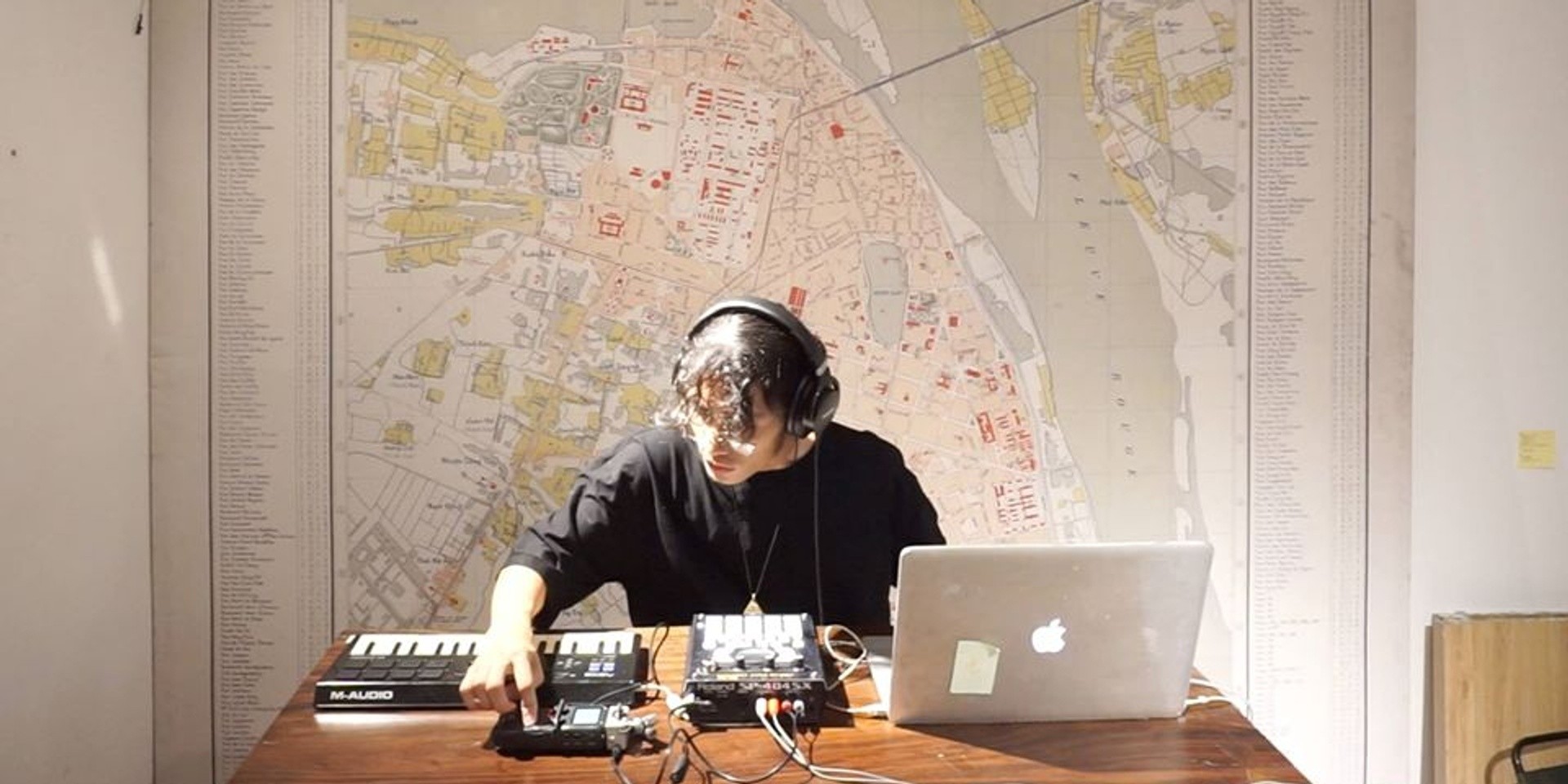Determined to take listeners through an auditory journey around Yokohama, Japan, Jett Ilagan a.k.a Escuri emphasises and explores cultural soundscapes in his latest album, Wander Studio.
No stranger to cultural projects, Escuri’s latest endeavour was a project for Koganecho Bazaar 2018, a two-month art residency that pushes artists of all kinds to deeply explore and immerse themselves in local culture and the urban environment. And, that’s exactly what the Filipino electronic musician and visual artist did.
Mainly inspired by psychogeography, which is the study of how the environment affects an individual’s emotions and behaviours, Escuri spent most of his time in Yokohama moving from laundromats to temple houses and interacting with people and nature to collate a series of recordings that beautifully encapsulate urban Japanese life.
Sampler in hand, the BuwanBuwan Collective member set up a mobile studio in eight different locations across the city, all of which are represented through the album’s eight tracks. Beyond his own artistry, Wander Studio also features the artist’s collaborations with local musicians.
Below, Escuri shares with Bandwagon his journey making Wander Studio and what else is in store for the future.
Tell us how you started your Wander Studio journey.
Before Wander Studio, my practice revolved around performances in public spaces and producing music infused with gathered field recordings. For this project, I simply married those practices with the aim to examine how can a mobile music studio situated in different environments affect my musical output. Let’s just say that I want to literally take my production process outside of my ‘bedroom’ and be immersed in public spaces as I produce music.

How did you choose the places to visit and the setup for each studio?
Koganecho is a small and intimate community. It was a former red-light district transformed into an art community. The curators of the program shared the history of the place and significant locations in the area. I chose the Wander Studio locations based on how it connects to me, its significance to the community, and most importantly, based on the location's sound characteristics.
Even though the area is small, Koganecho houses various environments each with different characteristics, conditions, and animations happening.

How did you get in touch with the local musicians and how did your collaborations take place?
Some of the musicians that I met are involved with the artist residency program but most of the recordings I gathered were spontaneously taken during my interactions with the participating artists and with the community.
In the process, I interviewed the locals and listened to stories about their daily lives. I recorded the sounds that they're producing during work or sometimes the ambient sound of their surroundings. In addition, these stories from the community were used as an inspiration for the composition of the pieces.
Do you have a favourite Wander Studio collab and why?
One of my unforgettable work was done in Tofukuji Temple. The temple houses, stunning shrines and sanctuaries but aside from that my attention was drawn to its ancient graveyard. The temple’s graveyard has intricate pathways, surrounded by tombstones and nature. Spending time there allowed me to self contemplate and be connected more with my self.
I would like to mention a line from a memoir I wrote during my residency, “Sometimes to discover yourself, you have to lose your way.”

Seeing the current coronavirus situation, how do you plan to continue this concept?
It is apparent that outdoor and public spaces projects and events are affected by our current situation. I believe [as a sound artist] that now is the time to re-hear, re-think, and re-evaluate the changes happening in our urban environment. I aim to survey the 'sound' of the present, explore creative sound-based acts in the context of “new normal", and most importantly, interrogate how can music and sound be a tool to raise awareness and push social change.
Check out the video for Wander Studio here:
Stream and download Wander Studio on Bandcamp now:
Like what you read? Show our writer some love!
-


